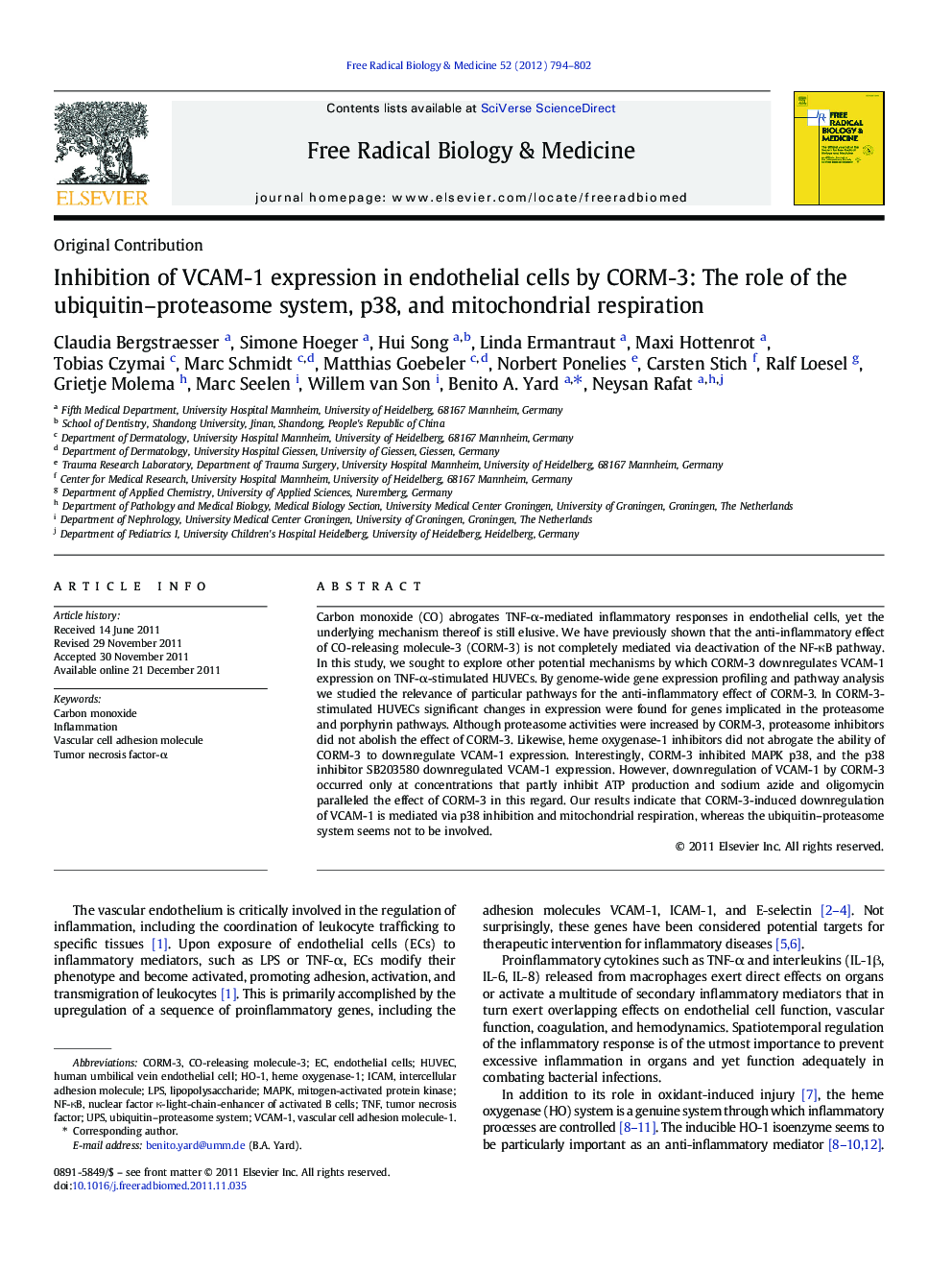| کد مقاله | کد نشریه | سال انتشار | مقاله انگلیسی | نسخه تمام متن |
|---|---|---|---|---|
| 1909113 | 1046701 | 2012 | 9 صفحه PDF | دانلود رایگان |

Carbon monoxide (CO) abrogates TNF-α-mediated inflammatory responses in endothelial cells, yet the underlying mechanism thereof is still elusive. We have previously shown that the anti-inflammatory effect of CO-releasing molecule-3 (CORM-3) is not completely mediated via deactivation of the NF-κB pathway. In this study, we sought to explore other potential mechanisms by which CORM-3 downregulates VCAM-1 expression on TNF-α-stimulated HUVECs. By genome-wide gene expression profiling and pathway analysis we studied the relevance of particular pathways for the anti-inflammatory effect of CORM-3. In CORM-3-stimulated HUVECs significant changes in expression were found for genes implicated in the proteasome and porphyrin pathways. Although proteasome activities were increased by CORM-3, proteasome inhibitors did not abolish the effect of CORM-3. Likewise, heme oxygenase-1 inhibitors did not abrogate the ability of CORM-3 to downregulate VCAM-1 expression. Interestingly, CORM-3 inhibited MAPK p38, and the p38 inhibitor SB203580 downregulated VCAM-1 expression. However, downregulation of VCAM-1 by CORM-3 occurred only at concentrations that partly inhibit ATP production and sodium azide and oligomycin paralleled the effect of CORM-3 in this regard. Our results indicate that CORM-3-induced downregulation of VCAM-1 is mediated via p38 inhibition and mitochondrial respiration, whereas the ubiquitin–proteasome system seems not to be involved.
► Gene expression in endothelial cells is significantly affected by CORM-3 treatment.
► The anti-inflammatory effect of CORM-3 results from inhibition of p38.
► It also results from impairment of the mitochondrial respiratory chain.
► Impairment of the mitochondrial respiratory chain results in mitochondrial reactive oxygen species.
► Overexpression of HO-1 is not a main mediator of CORM-3's anti-inflammatory action.
Journal: Free Radical Biology and Medicine - Volume 52, Issue 4, 15 February 2012, Pages 794–802